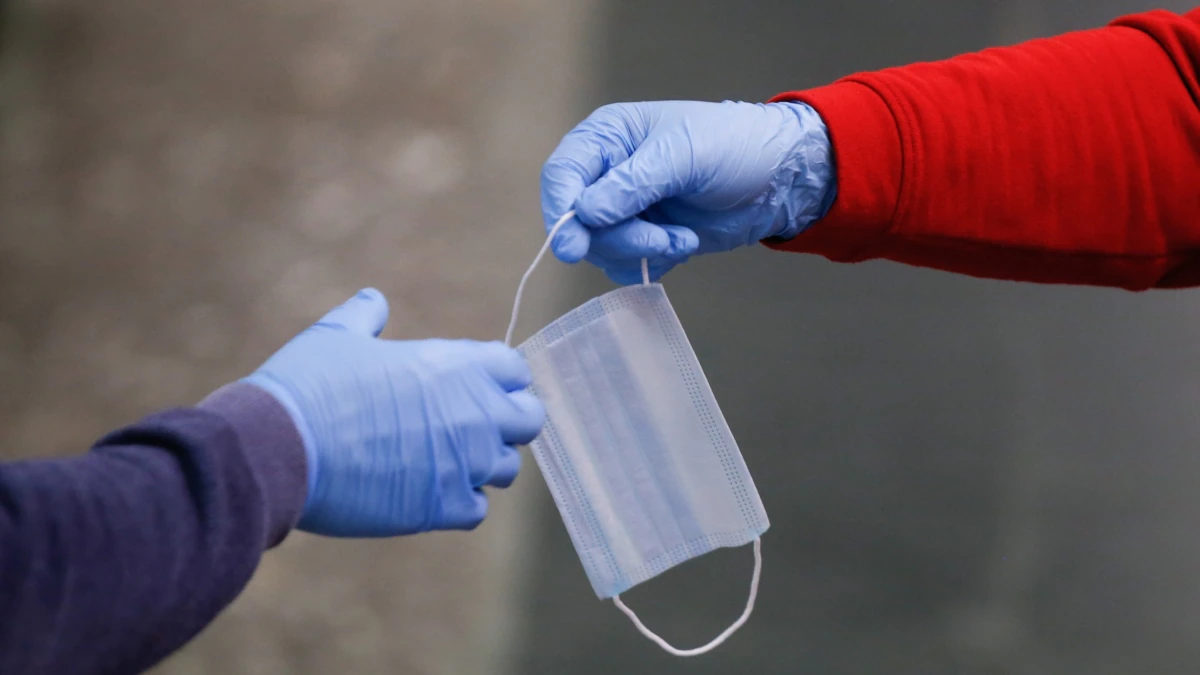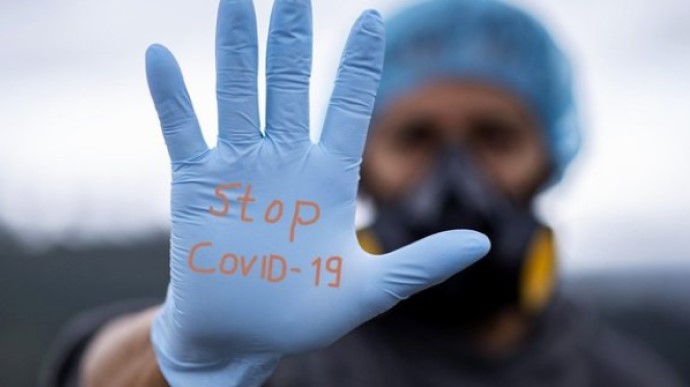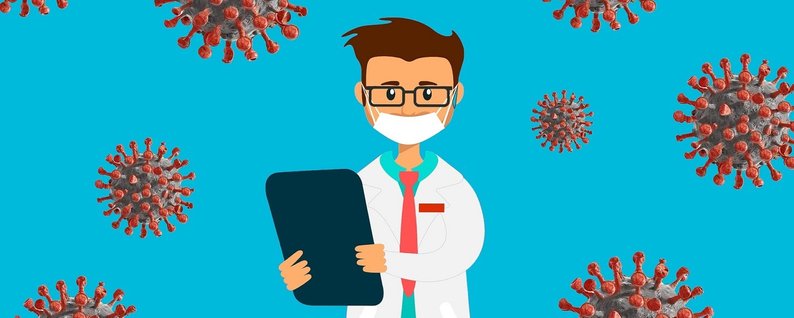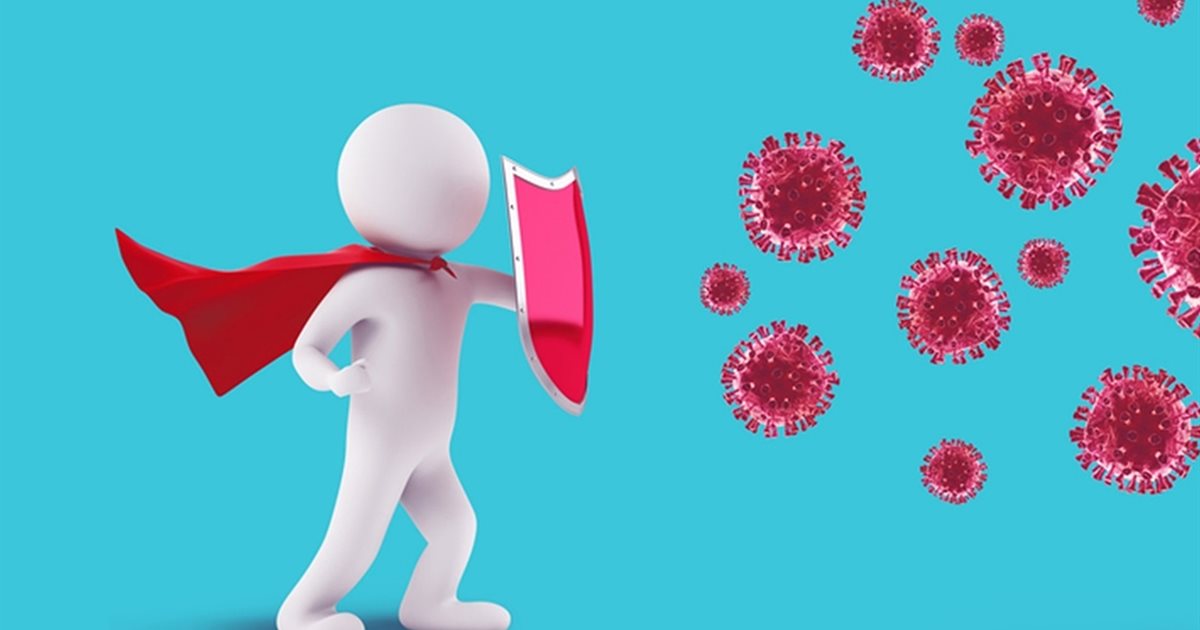"My working week looks like an endless groundhog day": medical workers and activists explain what the fight against coronavirus really looks like in Ukraine
Insider's look at the situation: the fourth wave of coronavirus in Bukovyna, excessive government control over doctors, and conditions that don't allow doctors to "heal" patients.
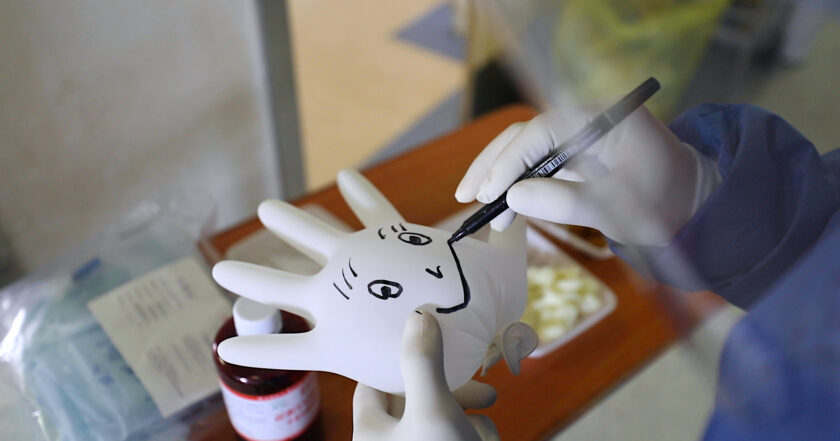
"My working week looks like an endless groundhog day. I learned to take some breaks on Saturday and Sunday. But at the wave's peak, it's horror. Really awful. There's no Monday, no Sunday, no day or night when my family isn't cross with me. They're very patient, but when I never turn off the phone, and when I can leave a small baby in the middle of the night and go somewhere, or take her with me, it's not great. But it so happened that I can't pass it on to anyone."
It's a quote from the story of philanthropist Lesia Lytvynova, Head of the Svoi Foundation, who from the beginning of the pandemic has worked to provide patients and doctors with things Ukraine's medical system, unfortunately, cannot provide.
"One doctor has 126 patients! One-third of them are serious, four are critical, and four are in a coma. It's an average infectious disease doctor. I talk about my duty shift. At first, you do cardiac compressions on one patient. Meanwhile, they call you and say that the other is unconscious, you have to run there to do the same. And how to choose who you have to save first? Just be in two places at once. Well, of course, it's the wrong logistics on the ground, because one doctor cannot work with such a workload. But that's why I'm saying it. It's physical and moral exhaustion."
That's the quote of Olha Kobevko, an infectious disease doctor at the Chernivtsi Regional Hospital, who has also been on duty without weekends since the beginning of the pandemic.
Lesia Lytvynova together with other speakers at the online discussion "Taming COVID-19. How and when will we overcome the pandemic?" which took place in the DOCUSPACE online cinema, talked about what's not said on TV screens and not written in official reports of the Ministry of Health. A real pandemic, as seen by those who face its consequences every day, is far more terrible and severe, and requires almost as much strength to fight as an actual war. Or maybe more.
The pandemic has forced many NGOs, charities, and, of course, doctors to turn the valves to the maximum and use all their resources, but the strengths are dwindling and the barrage of criticism is, of course, falling on those most responsible:
"We've never had stupider imbeciles, pardon the expression," Dmytro Sherembei, chairperson of the Coordinating Council of the 100% Life Charity Organization, describes the activities of the Ministry of Health. The organization has been working for 20 years as a Foundation that attracts resources to Ukraine, and now it has faced a total outburst in its work with the authorities:
"The last year and a half is a kind of total horror. On average, we deliver a plane, two planes a month of humanitarian aid. To put oxygen in 12 clinics to each bed, to each! We need to find money, the company, contractors. There's a lot to do, and to do it quickly… and to spend seven months at the Ministry of Health that it simply signed one piece of paper that this equipment can be connected. In seven months, I think you can count how many people died in these hospitals. To put the equipment for mobile blood assessment in terms of gases in CCU, we spent eight months for Stepanov to sign the document. I thought there was no more corrupt, incompetent person, incapable of running the ministry. Even during the time of the Party of Regions, the approach was more or less systematic. They all stole, of course, committed lawlessness, but these are people who could rule," says Mr. Sherembei.
Do lockdowns have an actual effect?
First, you need to find out if there were lockdowns. In large Ukrainian cities, the work of food venues was closely monitored, however, and there were some exceptions: some restaurants didn't stop working, and the grocery Epicenter, which was to be closed, easily let customers into the buildings, despite the ban. As for less densely populated cities, there was no quarantine there, according to Olah Kobevko, an infectious disease doctor at the Chernivtsi Regional Hospital:
"I can say that the red zone, which is provided for in the documents, isn't like that in reality. During the red zone in Bukovyna, you could go to a regular hardware store and buy something. Absolutely no control: we had markets working, so you know. Meanwhile, the officials from the regional state administrations came to briefings and talked a lot about how great the influence the red zone had and how it improved the situation in Bukovyna," she says.
The same applied to "waves," or "peaks," as Olha calls them. She works proximately in the "last level" hospital, i.e. with the most seriously ill, and sees the entire situation from the inside. As it really is:
"They count about three waves in Ukraine. I don't distinguish waves at all. I believe that at a pandemic, we simply have peak moments," the doctor stated. "If we talk about three waves, there were four waves in Bukovyna. We had a wedding period from August to the end of September. And a wedding is at least 300-400 couples. And it was a wedding period, and then it was hard for us. We came at a very strong peak and there were a lot of young people and a high mortality rate. But they don't talk about it in Ukraine, because we're one region that got into it all in August," Olha Kobenko shared.
Nobody denies the existence of waves. Everyone agrees with this, stressing that between the disease "peaks" the coronavirus doesn't disappear:
"I think it may be a little easier for me because I work with covid patients. And seeing patients, I usually feel when the peak is ahead, and when the wave falls. And yes, it's actual waves, and yes, it's really a lot easier now than it was a few weeks ago. And much, much easier than it was a month ago. But globally it's not going anywhere. The request isn't decreasing, but because I'm cleaning up the wave that has already gone. That is, I have patients who are discharged. Not new ones that get sick. Now I have loads of people, discharged from the hospital, who need oxygen. But not new ones, there are less, less, less of new patients… they'll come, covid doesn't disappear anywhere between the waves, but it's not as massive as it was a month ago when we choked. And there was horror," Lesya Lytvynova comments.
A new wave of coronavirus will come in the autumn. And we're not ready for it
Lesia Lytvynova and her colleague, Dmytro Sherembei, made such a sad forecast. For almost a year and a half, they've already learned to look into the future, but, unfortunately, they don't see any prospects for collective immunity:
"Autumn will probably have the most arduous wave. And the worst thing is that it could've been avoided. The worst thing is there were resources to avoid it. And this stupidity and disorganization in terms of the budget process and the ability to invest resources in a strong infrastructure that will allow vaccines, tests, equipment to stop this process. This didn't happen," Dmytro shared.
And here the conversation returns to fund mismanagement by the authorities. And not in vain. Everyone already knows that more than half of the coronavirus fund, 35 out of 65.5 billion hryvnias, was redirected to the Great Construction program. The money that could've been spent to save lives was "rolled into the asphalt" as Dmytro put it.
"When you get 65 billion, in terms of numbers, it's a hundred million most expensive vaccines, it's two most expensive oxygen devices at each bed in Ukraine, it's about 65 million per thousand clinics of additional resources and 100 thousand for each doctor. And they rolled it all into the asphalt. Everything."
Dmytro also stressed the state's violation of norms. He reminded us of Ukraine's directive law on financing the health care system. It has a very important rule that the health care system should be financed with a minimum of 5% of GDP, but for two years in a row, it's financed at the level of 3% of GDP. The total deficit during the epidemic was 129 billion hryvnias. Budgets in the Ministry of Internal Affairs have increased, in other ministries, they've increased, in sports, they've increased, but not in health care. As a result, there was a major collapse in infrastructure, the lack of technology that wasn't bought, and doctors, and besides this total deficit of 120 billion, plus 65 billion, of which doctors got one and a half.
"I think it was a sentence. For people. I'd like to say to all mayors, all governors, and all decision-makers. Stop construction and repairs. Spend all your money to save people. To purchase individual vaccines and equipment for hospitals. But I think that as in any healthy family, people, understanding that someone is suffering, should stop everything and stop suffering. So everyone who makes decisions has such powers. Not only the central government but also the local authorities," he concluded.
What we can do to avoid terrible consequences?
Obviously, it requires resources. And not a small amount of money. According to Dmytro Sherembei, the state should allocate about 8 billion hryvnias for purchasing vaccines. And it's not a panacea, but only a "stress reduction" for the autumn wave.
However, we can hardly expect additional funds from the budget; according to doctors, in particular, Olha Kovban, the Ministry of Health doesn't help to save lives, and neither that of patients nor of doctors. Lack of resources drives doctors to rigid limits, impossible to go beyond. We're talking about the number of days of patients in the hospital specified in the Ministry's order, which is not enough to fully stabilize the condition of a person who's contracted covid, as well as the number of drugs that aren't always enough:
"The protocols state the number of days the patient can be treated in the hospital, for example, of the last level where I work. Then we have to discharge the patient home… Nobody wants to talk about the post-covid either. These patients are really no longer infected, no longer have any symptoms, but respiratory failure remains with them, which makes their lives difficult because people absolutely cannot exist without oxygen. And no one thought about it. It's only now that concentrators for family doctors have been imported, which can be used and given to patients at home," the doctor says.
She also stressed that sometimes doctors managed to bypass the system and leave the patient in the hospital for a longer time, but it's not always possible:
"They even control the number of drugs administered. We have to report for each bottle," she says.
"So every decision that can be made has two sides of a medal. The ability to distribute resources among everyone leads to the fact that no one lacks them. Therefore, with the consent of all speakers, everyone should be responsible and take the disease, quarantine requirements, and personal protection as seriously as possible.
Is rehabilitation of doctors needed?
It's better to start with a story again. Olha Kovban says:
"Both at the front and in the red zone, medics support other medics. I'll tell you I have one big and most pleasant memory of the entire pandemic when one day we gathered in the morning: the doctors were very exhausted, it was June, we worked constantly at the peak because we had a lot of patients since March, since that time, we didn't stop. When we had this complete exhaustion, and we just wanted to hug, but we understood we couldn't do it in the office. The first thing we did is we put on scrubs and went to hug each other. You know how much physical contact was lacking even when we were away, even from our parents… For example, I lived separately from my child, and it is very hard. Believe me. And that was just the beginning, and it's been a year and a half."
On the example of Olha Kovban, we see how hard medical workers work, who've been in the first echelon for a year and a half. And the comparison with the front is appropriate because it's necessary to rehabilitate after such hard work, restore both mental and physical resources. All hopes remain with the state, but, according to Olha, only volunteers will be engaged in rehabilitation.
Others relate to rehabilitation, which can be arranged by volunteers, with skepticism:
"It seems to me that volunteers won't do this. Sorry. Because volunteers are trained by what happened to the soldiers. And volunteers know that these events won't be attended by those who are exhausted, it'll be impossible to find them, but partygoers will come. Unfortunately or fortunately, we have a lot behind us since 2014, we've learned a lot. We don't go through it in the first round, so we know the price of everything very well," Lesia Lytvynova says.
What does the Commissioner for Human Rights say?
The logical question comes up after everything heard: is it a violation of human rights to restrict doctors in their professional activities, not provide them with any means of protection, and discharge patients from hospitals before they're ready to do so? We asked this question to Aksana Filipishyna, the representative of the Commissioner for Human Rights and the Rights of the Child and the Family:
"Strictly, we can't speak unequivocally about human rights violations, the absence or presence of violations, because each case is individual. Violation of human rights when we talk about fundamental rights. The right to life, the right to health. And, of course, only the doctor has to assess the situation with each patient. I'm not ready to answer this question on the nose, as to whether it's a violation of human rights or not: maybe yes, and maybe no, each case is individual," she says.
However, something is still happening, the processes are starting slowly, but not so much to save the situation:
"The Verkhovna Rada Commissioner for Human Rights appealed to the Constitutional Court of Ukraine regarding the failure of medical reform. And covid as the basis which has shown the failure of this reform. I agree with Ms. Lesia, and I want to say that everyone responsible for deciding on a pandemic situation must remember that life comes first. That's the point," Aksana Filipishyna added.



